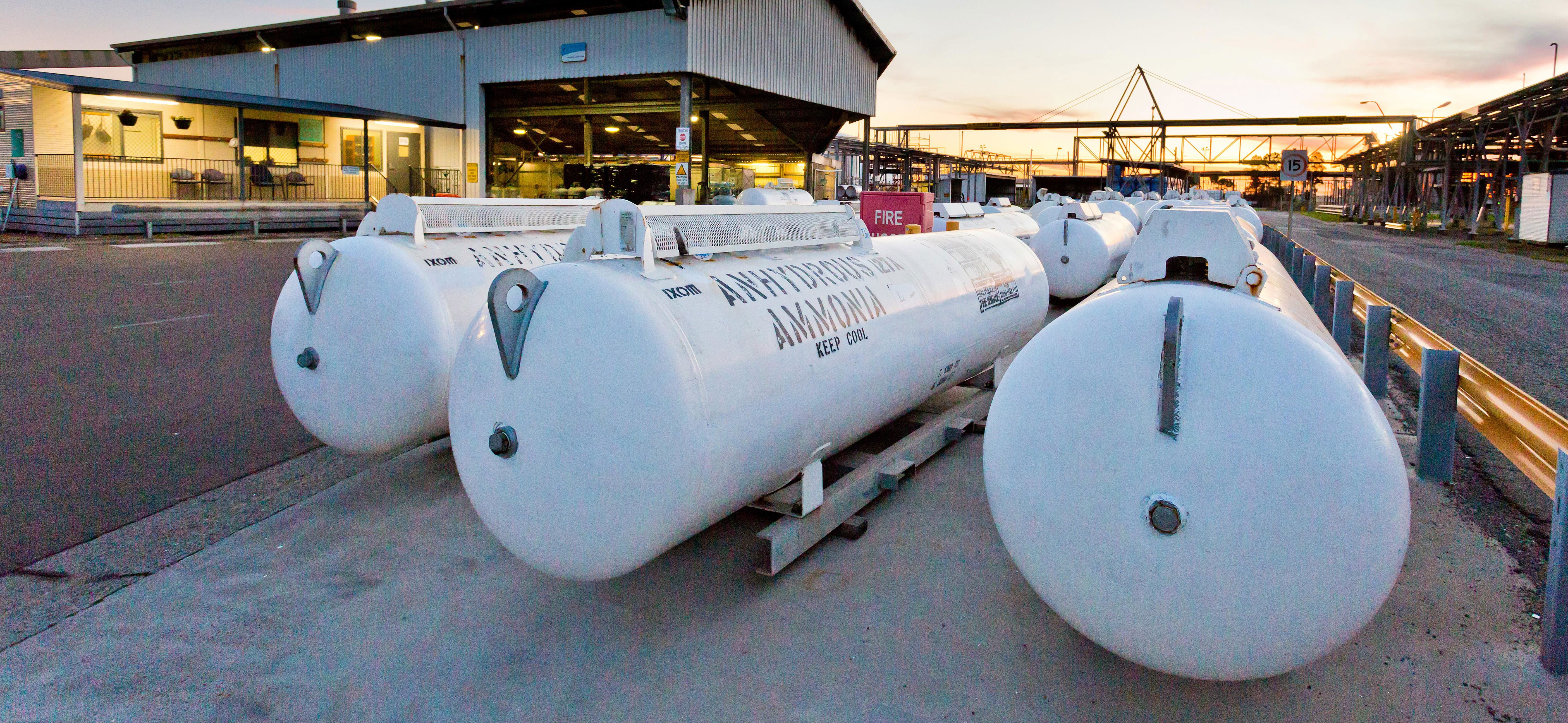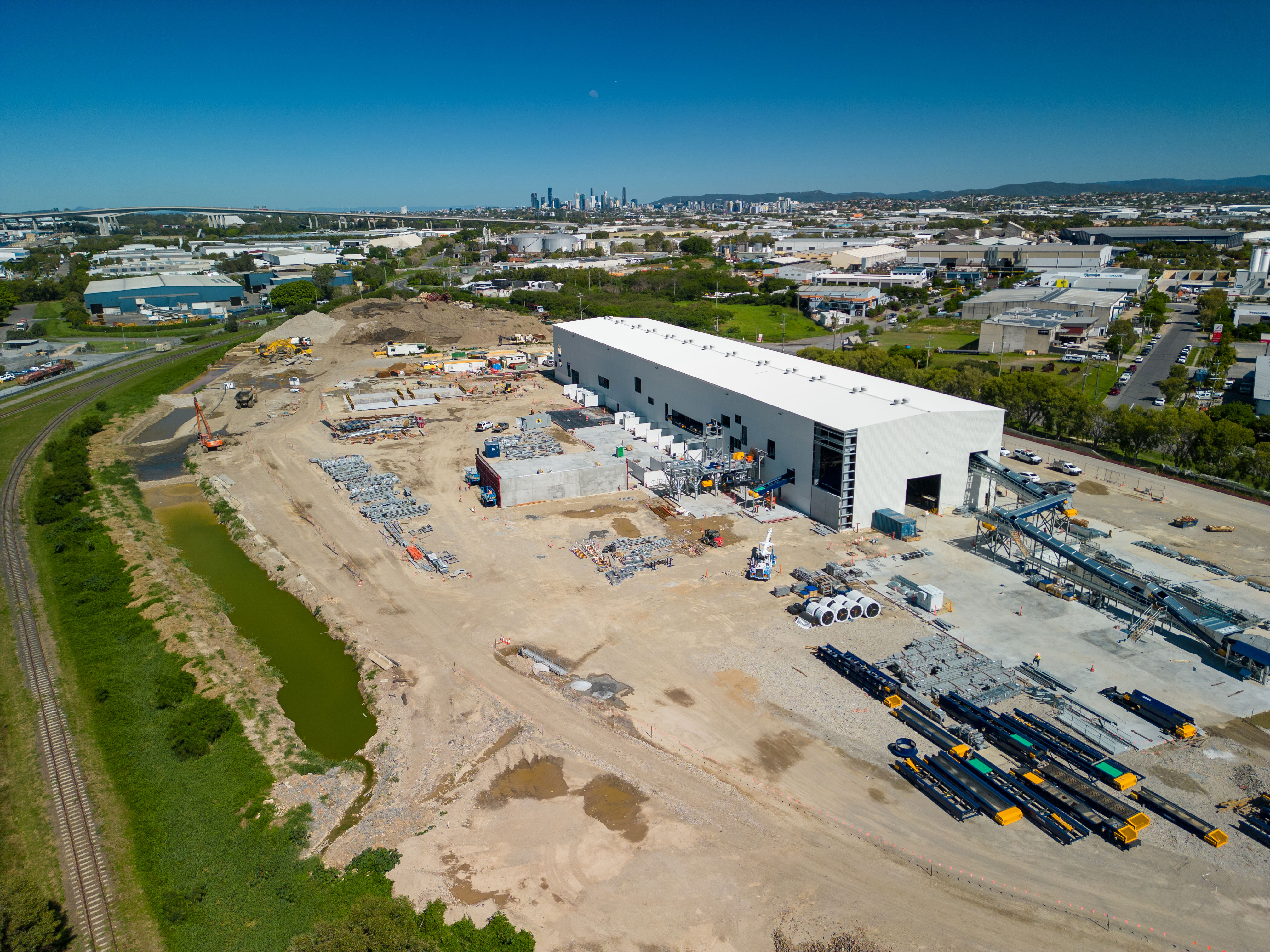
Orica slashes emissions with world-leading tech
Kooragang Island Decarbonisation Project delivers major sustainability outcomes
A pioneering CEFC investment in the manufacturing sector is effectively reducing the nation’s chemical industry process emissions by 11 per cent, by helping reduce emissions of a potent greenhouse gas using proven international technology in an Australian industry first.
$25m
investment
~98%
emissions reduction
Australian
sustainability leader
Sustainability is at the core of our purpose and this milestone highlights our ongoing commitment to supporting our customers in achieving their sustainability goals and our long-term support of the Hunter region while also supporting government decarbonisation ambitions. It also shows the power of partnership when private business and government work together.Germán MoralesOrica Group Executive and President Australia Pacific and Sustainability
Our investment
A $25 million CEFC commitment has enabled manufacturer Orica to upgrade processing plants used in the production of ammonium nitrate with technology that has reduced the greenhouse gas emissions of the plants by at least 98 per cent.
This is equivalent to 48 per cent of the Kooragang Island site's total greenhouse gas emissions and 11 per cent of all chemical industry process emissions across Australia.
A CEFC first
Orica is the world’s largest provider of commercial explosives and blasting systems to the mining and infrastructure sectors.
The Kooragang Island Decarbonisation Project, in New South Wales, is the first major direct investment by the CEFC in the manufacturing sector and represents one of the largest single abatement projects financed by the CEFC.
The manufacturing sector is responsible for 11 per cent of Australia’s carbon emissions. Globally, industry accounts for 23 per cent of greenhouse gas emissions1, with emissions from the sector rising nearly 70 per cent between 1990 and 2014.
The global warming potential of nitrous oxide emissions is much more potent than carbon dioxide emissions. An investment which curtails these emissions to this extent can have a significant impact on our national emissions.Ian LearmonthCEO, CEFC
One million tonne milestone
Orica announced it had abated one million tonnes of emissions using the Kooragang Island abatement technology in February 2025. It compared the achievement to taking 600,000 cars off the road.2 The significant emissions reduction is the result of Australian first deployment of tertiary abatement technology on three nitric acid plants.
Orica also achieved other significant sustainability milestones at Kooragang Island in 2024 including 10 years of recycled water usage and the installation of a prill tower scrubber that reduces ammonium nitrate particle emissions by 95 per cent.
To facilitate the Kooragang Island project, the New South Wales Government Net Zero Industry and Innovation Program co-invested $13.06 million. The Clean Energy Regulator approved the project as eligible to generate Australian Carbon Credit Units.
Orica has also installed the technology at its Yarwun nitric acid plants in Queensland to support its ambition to achieve net zero emissions by 2050.
1 IEA Global energy-related carbon emissions by sector, March 2021
2 Calculated using emission factors and typical annualised travel distance for Australian light vehicles sourced from Carbon Dioxide Emissions Intensity for New Australian Light Vehicles 2021.pdf and Survey of Motor Vehicle Use, Australia, 12 Months ended 30 June 2020 | Australian Bureau of Statistics.
our impact
Orica demonstrates dramatic abatement potential
Strategically located at the entrance to the Hunter Valley, Orica Kooragang Island supplies critical products to the mining and infrastructure, agriculture, water supply, food, dairy and medical sectors.
Orica Kooragang Island is also a significant employer in the Newcastle area, with approximately 210 permanent employees and around 40 regular contractors.
The facility includes an ammonia plant, three nitric acid plants, two ammonium nitrate plants and a product dispatch facility.
The tertiary nitrous oxide abatement technology installed at the three nitric acid plants is eliminating a greenhouse gas that is 265 times more potent than carbon dioxide.
The Kooragang Island Decarbonisation Project, which opened in July 2023, will eliminate 567,000 tonnes of CO2-e from the site each year, which is equal to emissions from 50,000 Australian homes.
Orica is confident that the sustainability measures at Kooragang Island will serve as a demonstration case for the opportunities to reduce nitrous oxide emissions in the manufacturing industry.
Hydrogen in next step to decarbonisation
Orica is continuing to evaluate the viability of a potential commercial-scale renewable hydrogen supply chain in the industrial and port zone of Newcastle to further decarbonise future operations, offering lower carbon intense products to its customers and supporting continued economic growth in the Hunter.
The initiative will require a low carbon alternative feedstock for ammonia manufacturing, likely in the form of renewable hydrogen, to replace natural gas feedstock. Orica is co-developing the Hunter Valley Hydrogen Hub, to enable hydrogen to be used in the production of green ammonia and ammonium nitrate.
Navigating a lower emissions pathway
While innovation and cost reduction have helped drive the decarbonisation of sectors such as property, transport and energy, the pathway to lower emissions in manufacturing has proved more challenging. Hurdles including a lack of technological solutions, financial incentives and customer willingness to pay a premium for green products have slowed meaningful progress.
As new advances come to market, manufacturers who are alert to the need to reduce their carbon footprint can take advantage of such technological developments.
Sustainability recognised
The Australian Financial Review named Orica Australia’s most sustainable company for Impact in 2024 as it marked the success of the Kooragang Island Decarbonisation Project as the biggest emissions abatement project in the nation’s chemicals sector. Orica secured top honours in the Resources, Energy and Utilities category as well as overall winner for Impact.




